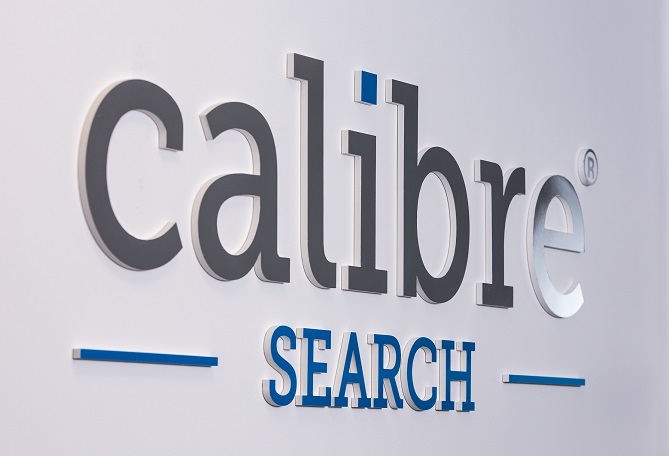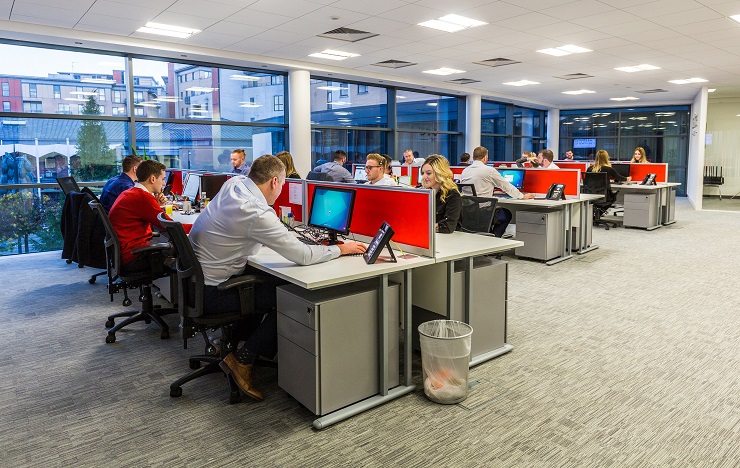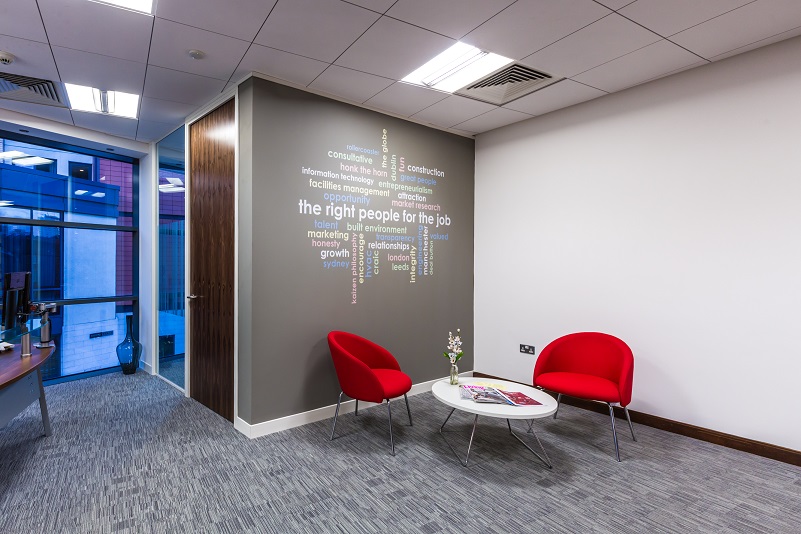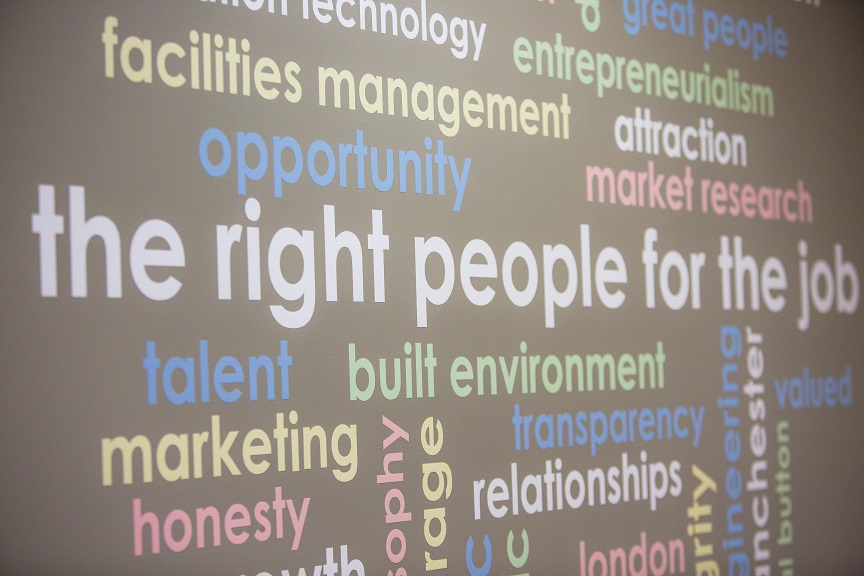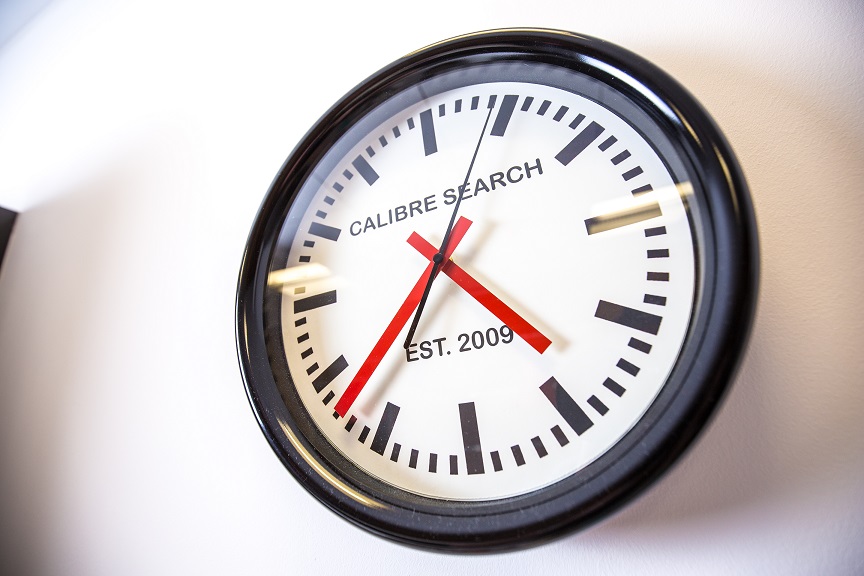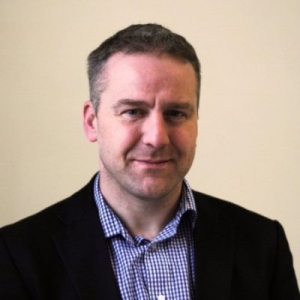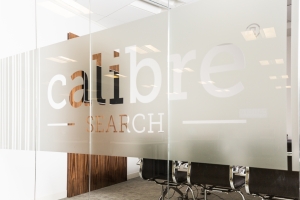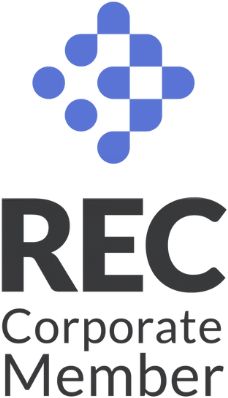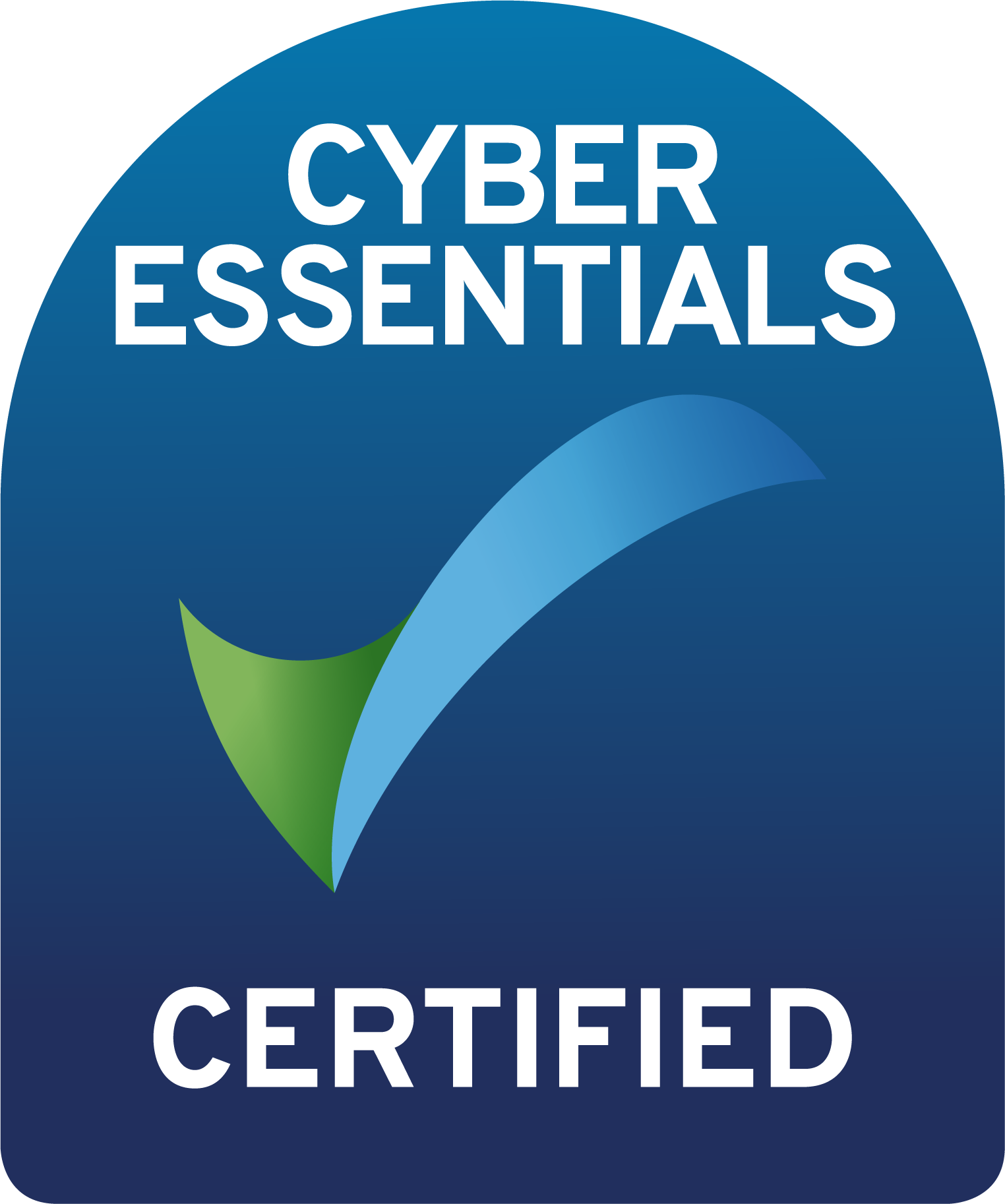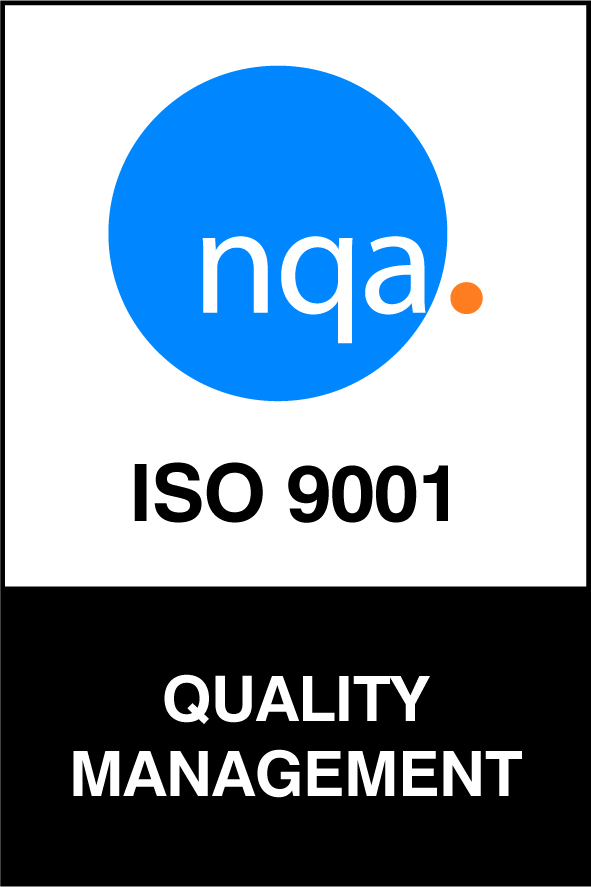Test Owner
Meet The Team: Mark Brennan
 This week's Calibre team member we'd like you to meet is Mark Brennan. Mark is the Associate Director of our Built Environment Contractors Division and has been with us for two years now. You might remember him from his collaborative blog post, 7 CV tips for Quantity Surveyors.
This week's Calibre team member we'd like you to meet is Mark Brennan. Mark is the Associate Director of our Built Environment Contractors Division and has been with us for two years now. You might remember him from his collaborative blog post, 7 CV tips for Quantity Surveyors.
Read on to find out how Mark is just like an Okapi (we had to Google it, too.) You can connect with Mark on Linkedin here.
Name – Mark Brennan
Title – Associate Director
Sector you recruit to – Civil Engineering Contractors
Length of time with Calibre – 2 Years
Likes: Wine, beer, chocolate......you get the picture.
Dislikes: People who hang dog poo in trees at head height. No fun running into one of those on a Sunday morning.
What do you like about working at Calibre? A fantastic team. Everyone genuinely gets on well in and out of work.
What's the hardest part of your job? Letting clients know that their dream candidate isn't accepting their job.
What does a typical day at Calibre look like for you? Speaking with people, be it candidates or clients.
Do you have any advice for anyone who wants to get into recruitment? Be sure to treat people how you would like to be treated yourself.
What's the hardest interview question you've ever had to answer? Who's the best person you have worked with, and what made them 'the best?'
What are the most common mistakes you see candidates make? Being afraid that their CV is too long and not putting enough detail in the most recent job roles.
What would we find on your desk? Coffee, lots of paper, phone, computer.
What's your favourite sandwich? New York Deli!
What's the funniest thing you can remember happening at work? A colleague trying to do 'the worm' across the office and failing miserably.
Describe yourself in 3 words: Not Very Funny
If you were an animal what would you be and why? An Okapi – a bit dull at the front end (of the week) and a bit more lively towards the end.
12 Ways to Annoy an Architect

We know you love working in architecture. Despite the long hours, the stress, and the thankless tasks, it is all worth it to do something you are enthusiastic about, day in, and day out. The feeling of being part of something that will outlive you can be indescribable. There is nothing wrong with having a little moan here and there. Architects work harder than a lot of people and give us beautiful buildings, so we think you deserve it. We have even created a list of things to grumble about to start you off.*
1) Argue with them.
If your architect says you can't have a floating yoga room, it is impossible. There is nothing more frustrating than this conversation:
"We can't do that."
"But I want it."
"It's still impossible."
"But I want it."
2) Assume that you can do their job because you can draw.
Architects do a lot more than drawing. A lot more. As Paul Klee once said, "An artist can paint square wheels, but an architect must make them round." One way you can combat this is by fully explaining what your role entails – this can help reduce any misconceptions about an architect’s role.
3) Assume that you can do their job because you can do mental maths.
See above.
4) How long it takes to qualify.
A typical architect can expect to qualify after 7 years of training. This training includes a 3-year undergrad, a 2-year master's, and a final exam. Architects are dedicated to their role as they have long waited to qualify to become one.
5) Try to reminisce with them about crazy student days.
While you were spending your university evenings in the pub, architecture students were taking a 40-minute power nap under their studio desks.
6) Ask them when they're going to design a famous skyscraper.
It's very unlikely to happen due to the sheer competitive nature of the industry. However, aspiring architects can receive an opportunity to work on massive projects.
7) Point out the errors in their sketches.
Architects take their health and safety responsibilities very seriously, but first drafts are first drafts - haven't you got anything better to do?
8) Meet them at a party and jokingly say 'Can you build me a house, then?'
You're definitely not the first person to make this joke. Please stop.
9) Boast about how much sleep you got last night.
Things you'll never hear an architect say #1: 'I'll be home early tonight.' With constantly working with tight schedules and having heavy caseloads, it can be tough for architects to get everything done in standard 9-5 hours.
10) Take credit for their ideas, or even worse - steal their ideas.
There's probably nothing worse you can do to an architect, except hide all their tracing paper and run off. Don’t be a thief.
11) Decide not to pay them.
Why? Just why?
12) Say ANY of these things:
"Hmm... I'll know what I want when I see it."
"Architects are like construction workers, aren't they?"
"Why does a drawing cost so much?"
"I don't understand why it took you so long to do that little drawing."
"What's the difference between an architect and a surveyor?"
"What's the difference between an architect and an engineer?"
"Can't the computer do all of that by itself?"
"There's a crack in my ceiling, would you look at it for me?"
If you are an annoyed architect at the end of your tether - you're always welcome to have a chat with us or have a look through our Architecture jobs here. Calibre Search provides tailored recruitment services to the Built and Natural Environment multi-disciplinary consultancy market, including Architects, Architectural Technologists and Technicians - our specialist consultants have years of experience in this sector and are qualified to help you out and provide you with a professional opinion. Find out how to get in touch here or email tom.brown@calibresearch.co.uk.
*Note: No architects were harmed in the making of this blog.
Next up, we present our 7 CV tips for quantity surveyors as part of our 'CVs to get you hired' blog series. This week, you have at your fingertips the insider knowledge of not one, but two experts. For the task of providing you with the best and most useful advice, we asked our specialist consultants, Mark Brennan and Rob Hayton to depart some of their CV wisdom. They've come up with this handy checklist especially for quantity surveyors.
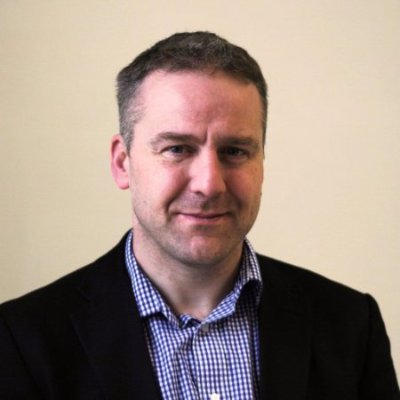 Mark Brennan
Mark Brennan
Associate Director - Civil Engineering, Building and Housing Contractors
Linkedin
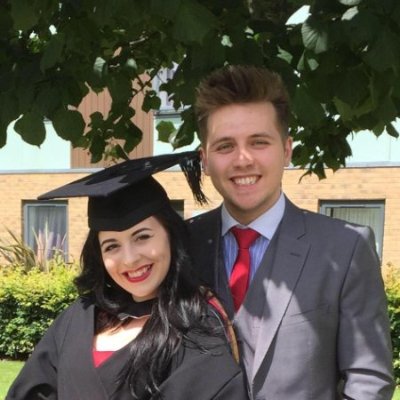 Robert Hayton
Robert Hayton
Recruitment Consultant at Calibre Search
Linkedin
1. Have you described previous schemes, duties and responsibilites?
We can't stress enough the importance of going into detail when describing your employment history and experience. Not only should you go into detail, you should also be sure to focus on what you have achieved and how. Take credit for your achievements by using phrases such as 'oversaw' and 'negotiated,' rather than 'helped,' or 'was part of.'
State the value of the schemes you have worked on as well as their sectors, for example 'Bridgewater Place, £80 Million, JCT, Mixed Use.'
In terms of your day to day duties, some relevant experience could be with contract administration, bills of quantities, CVR's, final accounts, cost control, warning notices or tenders. List these alongside other details such as type of construction projects you have worked with. Perhaps you have worked with steel frame, reinforced concrete, timber frame and modular? You might think they aren't important, but these small details could be the difference between getting the job or getting your CV left at the bottom of the pile.
2. Have you mentioned any software packages you are familiar with?
As above, it's important to go into detail about the specifics and technicalities of your experience. Perhaps you are proficient with Eque2? Causeway and Candy are two other examples of software packages you might have used. As technology evolves, so do the standard technological capabilities of employees. It is no longer necessary, for example, to mention that you can use Microsoft Office, as this is expected of most applicants. Because of the fast pace of technology, it's important you continue to update your CV with the latest technology and software you are capable of using. It could just give you the edge against another candidate who hasn't taken the time to upgrade their technical skills.
3. Have you backed up your core strengths and skills with evidence?
It's one thing to randomly list unsupported skills, it's another to provide evidence and data to back this up. You want to leave the employer confident that you are the right person for the job. It's crucial that you quantify your strengths where you can. Note the difference between 'I directed growth into markets and reduced costs,' and 'I directed growth into 6 new markets and reduced costs by 28%.' Format your quantitative evidence in bold to make it stand out.
4. Have you described your qualifications?
Quantity Surveyors often have a broad variety of qualifications. Whether or not you have a BSc, HND, or MSc in Quantity Surveying, or a qualification studying Construction Management, be sure to state this. It's also crucial to state any professional memberships, or progress towards them - are you a member of MRICs, for example?
If you have taken a postgraduate conversion course, explain the relevance of your undergraduate degree subject. The relevant skills from a Mathematics or Structural Engineering degree is obvious, but there are many transferable skills to be gained from not directly-related degree subjects.
5. Have you stated specific contract types that you use?
Have you used NEC, JCT, P21, ICE or Fidik, for example? This information is interesting to employers, and could affect whether they consider your application, so don't skim this part. If the employer is looking for a candidate with experience with a certain contract type, it's crucial that you mention this experience if it is relevant to you. The job description is your main clue to what the employer is looking for - if you need inspiration, have a quick look at our list of relevant job descriptions here.
6. Have you sold yourself?
While it's important to go into detail, you've got to make every word count. Your CV is your first and possibly only chance to convince the reader that you are the surveyor they need. In other words, it's really important to sell yourself. Mention things that you do that are perhaps not typical for someone of your seniority or usual remit for your role. Examples could be estimating, procurement, planning or project management. If you're applying for a more junior position, volunteering experience could give you the edge against other applicants. Even when the skills you gained from volunteering might not seem directly relevant to quantity surveying, things like event planning or community management are definitely transferable. You'll also want to draw attention to data analysis, numeracy skills and logical thinking.
7. Have you had your CV checked over?
If you'd like a fresh pair of eyes to check your CV or hear about the jobs we are looking to fill, we'd be happy to help - give us a call on 0113 234 6047 or 0161 660 2360. Or if you like, you could just drop one of us a quick email on:
mark.brennan@calibresearch.co.uk or rob.hayton@calibresearch.co.uk
We advise printing off this checklist to run through after you've written your CV. If you're struggling with getting started, we recommend using a CV template like this one to cover the basics.
Meet the Team: Rob Jones
 The next member of our Calibre team we'd like you to meet is our building services consultant, Rob Jones - who you might remember from his collaborative blog post with colleague Simon Owen, 6 Insider Tips for Building Services Engineers.
The next member of our Calibre team we'd like you to meet is our building services consultant, Rob Jones - who you might remember from his collaborative blog post with colleague Simon Owen, 6 Insider Tips for Building Services Engineers.
You can connect with Rob on Linkedin here.
Title: Recruitment Consultant
Sector you recruit to: Building Services
Length of time with Calibre: 2 and a half years
Likes: Football, Tennis, F1, and Golf.
Dislikes: Snakes, heights, and tomatoes.
What do you like about working at Calibre? Great environment to be a part of and everyone gets on well.
What's the hardest part of your job? Finding candidates but that's market driven and why we do well in the sector.
What does a typical day at Calibre look like for you? Sourcing candidates, speaking to clients and putting square pegs in square holes!
Do you have any advice for anyone who wants to get into recruitment? Work hard and treat it as your own little business, it takes time to get off the ground.
What's the hardest question you've ever had to answer? If you were a vegetable what would you be and why?
What are the most common mistakes you see candidates make? Candidates not detailing projects in their CV sufficiently.
What would we find on your desk? Pen, paper, calculator, phone... probably a brew of some sort.
What's your favourite sandwich? Sausage Butty.
What's the funniest thing you can remember happening at work? The MD (who has never seen a gym before) beating my director in an arm wrestle despite him having a gym at home.
Describe yourself in 3 words: Approachable, reliable, informative.
If you were a vegetable what would you be and why? A gooseberry – like me.
What question would you liked to have been asked? Whats the most frustrating part of your role?
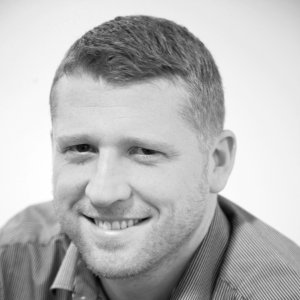 Matthew Finlay MIRPDirector at Calibre Search - Recruiter in the Marketing Industry with a leaning towards Market Research/Insight.
Matthew Finlay MIRPDirector at Calibre Search - Recruiter in the Marketing Industry with a leaning towards Market Research/Insight.Linkedin. A CV is like a marketing document - a tool you can use to present yourself in the best possible light. There can be a certain expectation, especially for those in consumer research, that applicants ought to be adept in the art of marketing. As a result of this, those applying to jobs in the field of market research can feel under pressure to produce an excellent CV that will demonstrate some marketing ability.
I've had a good hard think about the best (and the worst) market research CVs I have seen in my time as a specialist consultant. If you're an Insight Manager, Research Manager, Marketing Analyst, Research Director, Research Executive or similar - I'm confident that these 5 steps will help you craft a great CV that will impress employers.

1. Punchy profile.
Employers can spend as little as 20 seconds before they decide whether they like your CV or not. Your profile should be the first thing they see, so it really needs to make an impact. A personal profile should be a well-written snapshot of your career to date, your goals and achievements and include any 'selling points' that set you apart from other candidates. State whether your bias is quantitive or qualitative, too. Try to work out what your next employer is looking for (the job description is your main clue) and tweak the profile accordingly. Do they need a safe pair of hands on analysis? A good project manager, perhaps - or a business developer? Most importantly - your personal profile needs to be really well written to draw employers in. Use positive language to enforce your achievements - write with verbs rather than adjectives. For example, you could use words like 'launched,' 'developed, 'co-ordinated,' and 'motivated.' However, with this in mind, rid your profile of any cliched buzzwords like 'creative,' 'hard-working,' or 'team player.'2. The key is in the detail.
I'm always reminding candidates to include methodologies, achievements and project details in place of just writing simple job descriptions with a list of general responsibilities. While responsibilities are obviously important information for the employer - such as what parts of the research you were responsible for and what parts you oversaw - it is the specific details that can really impress an employer. If you work for an agency, explain whether you were involved from project brief right through to presenting the findings. Have you moderated focus groups, conducted depth interviews or presented back to clients? If so be sure to include this. If you work clientside, what were the strategies of the company or department? What were the challenges, and how did you overcome them? If you're higher than entry level, detail your mentoring or managing responsibilities. How about going one step further and saying whether your subordinates were motivated, improved as researchers, or received promotions. If you have been promoted, it's crucial that this is mentioned in your employment history. Don't be afraid to note specific projects that you found interesting, too - all of this will make you stand out.
3. Tell the employer what you're good at... and leave them in no doubt that you are good at it.
While this is your first, and possibly only, opportunity to market yourself as the ideal candidate, don't just make random unsupported claims. Tell the reader what you are good at, and leave them in no doubt that you are good at it by supporting this with results and statistics. What are your key strengths? If it's thinking strategically, include examples. Most importantly, mention the impact you had on our client or employer. Did you excite and motivate stakeholders - if you did, say how. Was anything introduced because of your findings? If you have the information available, explain what impact this had on the bottom line. Perhaps your research resulted in an improved customer satisfaction rate of 40%, or the actions implemented as a result of your research directly increased online sales by 25%? The more facts and figures you can use to give evidence the better.4. Get the balance right between having a personality and being professional.
Getting the balance right between being professional and letting your personality show can be tricky when it comes to writing CVs. Many candidates are wary of straying too far from the traditional CV formats. But, in reality, showing your personality won't make you seem unprofessional if done correctly. In fact, a lot of research agencies or departments take personality into account when hiring. It's important to research the company's culture before you start writing so that you can highlight any similarities. One way to inject some personality is to include a key achievements section. If you're worried, it's always a good idea to err on the side of caution.
5. Perfect and polish.
Writing only makes up half the task of creating a great CV. The other half is made up of going over and over your CV and making sure it's as good as it can possibly be. It's been said time and time again, but it's crucially important to thoroughly check for mistakes. Researchers (especially Quanties) are normally very thorough - I have one client who prides himself on finding mistakes in quantitative researcher's CVs!Market research can be a fast-paced and ever changing environment, so treat your CV like a living document that evolves along with the industry. That means continually updating and polishing your CV to get the best results with your job search.
There's a lot more I could say on this topic so if you have any more questions, please call me on 01132346047 or email matthew.finlay@calibresearch.co.uk Once you have impressed employers with your CV you may well need some hints and tips on how to excel in your interview - why not check out my blog about how to ace a market research interview here.
CVs to Get You Hired Part II : 6 Insider Tips for Building Services Engineers
Last week's 'CVs to get you hired' went so well, we asked our building services engineering recruitment team to give you some specialist advice. Rob Jones and Simon Owen have come up with these six insider tips to really impress engineering employers.
 Rob Jones
Rob Jones
Built Environment, Building Services, M&E Consultant at Calibre Search
Linkedin
 Simon Owen FIRP
Simon Owen FIRP
Recruiter and Director, Calibre Search and Chairman, CIBSE Yorkshire
Linkedin
In our experience, mechanical, electrical building services engineers can struggle with writing CVs because they often have to balance two sets of skills: technical and transferrable. If you're a building services engineer and you're not sure how to make your experience relevant, or if you're a mechanical or electrical technician just looking to make the most impressive CV you can, we hope these tips can help you.
1. Stuck for details?
Here are a few ideas for some details beyond the typical engineering basics. If these are relevant to you, use them to flesh out your CV and impress employers:
- List project details such as the scheme name, overview of the whole brief and the value of the project. Include an overview of your own brief too, and if you can, any details of what your role was in achieving the end product.
- What can you design? What software can you use? Describe the software and systems that you are used to dealing with as well as the standards that you are working to.
- If you have had any involvement with training or mentoring other staff, business development or site supervision, mention this too.
- Try to think of anything you may have done to set you apart from other applicants. These are the CVs that really stand out to an engineering employer. Remember to keep it relevant to the job description.
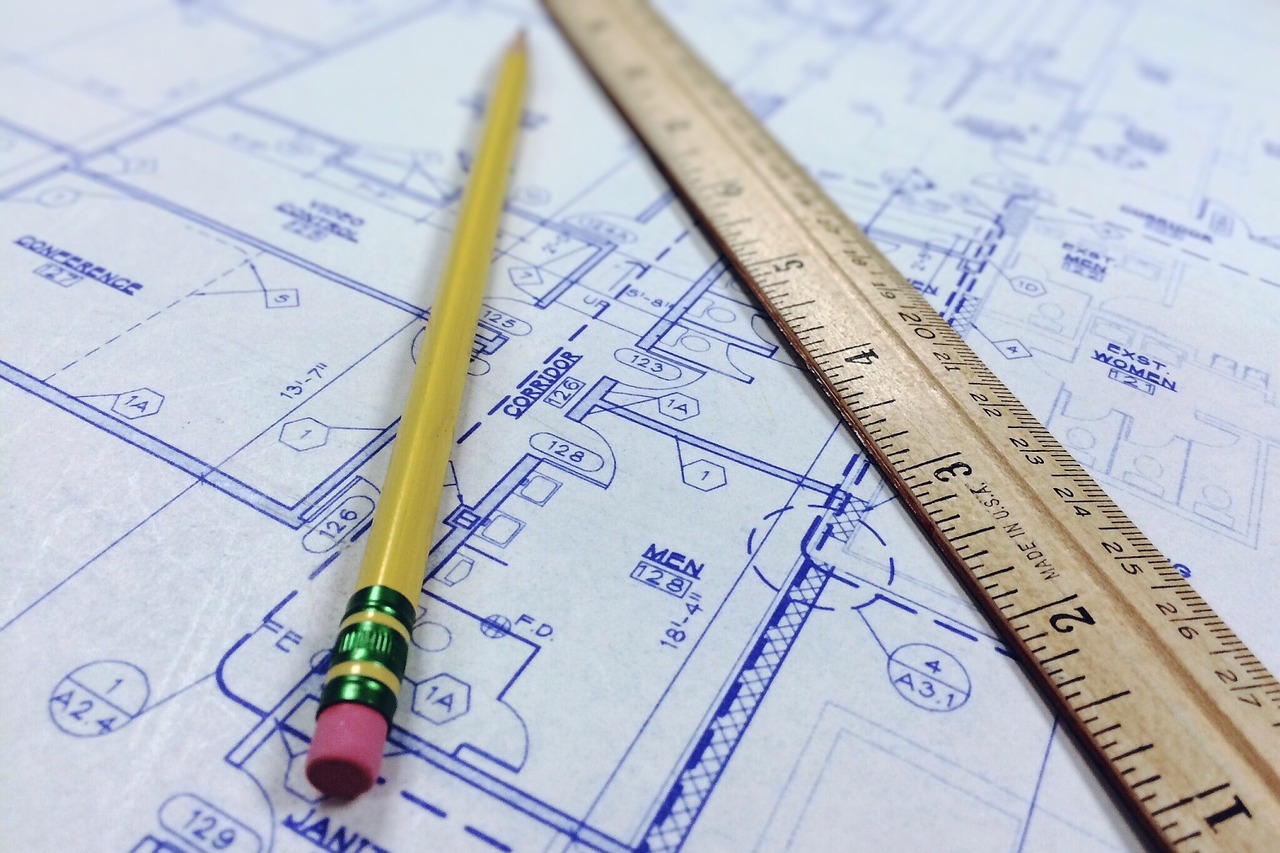
2. Answer the question.
Think of your CV as an answer to the question: 'Are you the right person for this job?' This is the question that every employer has in their heads when they read your CV. Make sure every part of your CV says 'yes' to this question. What really matters to engineering employers is whether you are qualified for the job. Look at the job description for specific things they are asking for - think of this as another question to answer. If you've got the qualities the employer is looking for, tell them! You will miss out on opportunities unless you expand on 'I designed systems for buildings.' If you some but not all of the desirable qualities, it could still be worth applying - try to summarise transferrable skills that make your experience relevant. Examples of these could be 'communication with suppliers,' perhaps - or 'prioritisation.' If you're struggling to make your application relevant to the job description, step back and assess yourself honestly. If you don't have any relevant work history and your degree or any qualifications is not associated in any way, it's probably not worth applying.
If you need a few ideas, check out our list of electrical, mechanical and building services job descriptions here.
3. Include a personal profile.
Your personal profile should be a well written 'snapshot' of your career to date. Include in this your current role, the next steps you plan to take and how your previous experience makes you the right person for the job. It's worth investing time on this summary, because it could be your only chance to grab the employer's attention. Whether from agencies or employers, many recruiters won't necessarily use a CV management system that will display your covering letter - it's important, therefore, to say in your profile why you are applying for the role. If your specific objective is relocation, for example, but you don't mention this explicitly in your CV, you could be dismissed when they see your address is out of commuting range.
Do note, however, that some engineering companies - especially those that are smaller - prefer a CV with a covering letter, so make sure you write one just to be safe.

4. Keep it professional.
It's understandable to want to inject some personality into your CV. After all, you want to stand out amongst the other applicants. It's best to think of a CV as a business document, like a company report. It goes without saying that fonts such as Comic Sans or any fancy scripts are inappropriate. However, with more and more CVs being uploaded and read online, choose a sans serif font such as Ariel, Atom or Tahoma over a serif font like Times New Roman. This makes it easier for the employer to read all of your achievements and experience.
If your employer is impressed with your CV, they are likely to check you out online before taking the process any further. If you have anything inappropriate on Facebook, update your privacy settings so it can't be seen. Likewise, make sure your Linkedin photo and profile are professional and give off a good impression.
5. Qualified for the job.
Anything that might make you stand out in a sea of engineering candidates is good news to a potential employer. It's really important that you mention any study you've undertaken, or involvement at all in professional groups such as CIBSE, FBE etc. Do you have any memberships? If so, say your level of membership - how far from Chartership are you? All of these details are interesting to employers.
If you're a graduate, as a minimum you should include your degree title, grade and institution as well as a small summary of your dissertation or final year project - we always suggest three lines as a good amount to aim for with this summary. If your degree was technical but not exactly similar to the job you're applying for - for example if you studied electronics - you should explain the similarities and how your knowledge of this particular subject qualifies you for the job. It could be useful to the employer to describe any specific modules that you think are relevant to the job description. Remember, you're trying to convince the reader that you are the perfect fit for the job - so, while qualifications are an excellent way to do this, don't stray too far from the specifications listed in the job description.
6. Still stuck?
Don't worry. The art of CV writing is a tricky one. Our specialist built environment consultants are experts when it comes to writing a great CV, and we're just on the other end of the phone - you can phone us on 01132346047. Find details on how to contact us here - or if you like, just drop us a quick email. We'd be happy to help - we can offer advice and even professionally format your CV for you.

0113 234 6047
john.cassidy@calibresearch.co.uk
The art of CV writing is a tricky one, and many online CV guides are not relevant to industries like the HVAC & refrigeration industry. So our industry experts put their heads together to create an insider tips for you CV to make the best first impression
Tailor your CV to suit the job description
A lot of us are guilty of having a ‘one-size-fits-all’ approach to our CVs. While following these CV tips can give you a great head start when applying to refrigeration jobs, remember you do need to slightly alter your CV according to the job description. For example, if the job description says they want someone with a driving licence, or someone with ‘extensive experience maintaining a range of commercial refrigerators,’ then add these details to your CV if they are relevant to you. If the job description says that for the refrigeration technician they want, an engineering degree is desirable but not essential, and you went straight to the refrigeration industry without higher education, you could perhaps talk about the benefits of this. Think of the experience that you have, that a graduate might not. Have a look at our refrigeration job listings for some inspiration. These tips are the ultimate basis for creating a great CV – but try to remember to give your CV a little update for each and every job description. Employers want to know that you want to work for them. If they sense that you have tailored your CV to their job description, it will make you stand out as the ideal engineer they are looking for.
Be descriptive
Try and be as descriptive and technical as you can when writing about your duties at previous companies. Employers like to see that you are qualified for the job. Remember – your CV is your first and possibly only chance to make a good impression. You could be the best engineer in your world but how will anybody be able to tell if the only detail you give about your experience is ‘servicing splits and VRVs.’ Some good details to include on your CV are:
- Basic duties such as: fault finding and repairs; replacing compressors; changing PCB inverters; recharging systems with refrigerant; changing fan motors; replacing evaporators; changing pressure sensors and so on.
- The equipment you worked on - was it pack systems, cold rooms, ice machines, bottle coolers, display chillers, integrals etc?
- The sites you have worked in.
- The type of work: servicing, maintenance, installation, fault-finding, or commissioning.
- Any refrigeration engineer training or refrigeration engineer course you undertook:Any experience with different refrigerants like C02 or ammonia. Have you worked with refrigerants such as R410A, R407C, R407A, R404 or R134A?
Focus on what matters
While having a fancy CV with lots colourful borders and impressive fonts might look pretty, (and might give some of us a good excuse for procrastinating) it will distract employers from what makes you a good refrigeration technician. The most important thing you want your CV to say about you is how well you can fix an AC or refrigeration unit, or how much industry experience you have – not your Microsoft Office skills.
Leave out irrelevant information
While the employer is interested in finding out a little bit about your interests, quirks and hobbies – their main goal is to find out if you have the relevant skills you need for the job. Remember this when you write your CV. Justifiably, you might be really proud of your City & Guilds qualification in food hygiene but ultimately, it won’t help the employer do their job. The same goes for work experience. Leave out anything that is totally irrelevant to the refrigeration industry and focus instead on qualifications such as FGas.
Be careful not to oversimplify
Bearing the last point in mind, it’s still important to go into lots of detail about the relevant information on your profile. Make sure to list all relevant employment history. The amount of times we have seen engineers with twenty or more years experience only list their last five years is overwhelming. They say ‘I didn’t think it would be worth writing it all down,’ or ‘there is too much to list.’ This is one of the biggest CV mistakes you can make in the HVAC and refrigeration industry. By deciding not to list all your relevant industry experience, you will seem far less experienced than you are and directly decrease your chance of receiving an interview offer.
Don't be afraid to ask for CV help
Writing a CV can be daunting. Quite a lot of engineers we speak to haven’t updated their CV in years. A lot of jobs in the HVAC and refrigeration industry are acquired from knowing the right people – not submitting a CV to someone you’ve never met. We understand that writing a list of your skills and attributes for a stranger to assess you without ever meeting you is a terrifying concept. You want to make the best possible impression. Fear not! We are experts when it comes to how to write a good CV. Our recruitment consultants check every CV before sending it to employers and give you free and personal advice on how to improve it. Even if you just want to drop us a quick email we are happy to answer any questions.
Last but not least, remember the basics
Remember to include your name, contact details, experience and qualifications. It might seem obvious but we have even seen some engineers’ CVs without contact details.
If you follow all of these tips and don’t get the results you wanted, don’t be disheartened. You might not have received an offer for an interview, but the time you spent creating a great CV will pay off in the future. Why not check out our list of refrigeration jobs and vacancies and upload your new and improved CV. Good luck!
If you’d like any help with your job search or want to speak to our consultants here at Calibre Search, please don’t hesitate to call us on 0113 234 6047.
Calibre Golf Day
Friday the 17th of June was the annual Calibre Golf day albeit this year was slightly different in that it was the first one with clients attending.
After the success of last year , Oulton Hall was the venue of choice again and provided us with a great environment to thank our existing clients and also meet some new faces. The standard of golf was very good and apart from a search and rescue team almost being dispatched to find the last team, the day was a resounding success.
Congratulations to all the winners who were;
Overall Winner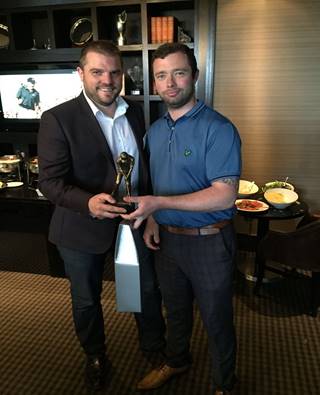
Nick Bastow (Applebridge Construction) with 34 points.
Joint 2nd were Tim Justice (Coda Studios), Neil Read (Alan Wood & Partners) & Stuart Wilkins (Bryan G Hall) with 29 points.
Team Prize
Team 3 – Neil Read (Alan Wood & Partners), Steve Carmody (Singleton Clamp), Stuart Wilkins (Bryan G Hall) & Martin Howie (Box Design).
Team 2 were a close 2nd - Steve Sykes (SBS), Sam Sykes (Calibre Search), Nick Bastow (Applebridge Construction) & James Mitchell (Calibre Search)
Nearest The Pin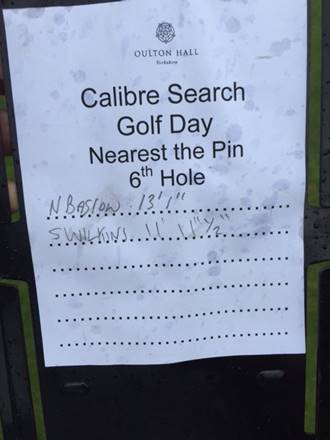
Stuart Wilkins (Bryan G Hall) – 11ft, 11 inches
Longest drive
Joe Nasson (Projex Building Solutions)
Calibre Cup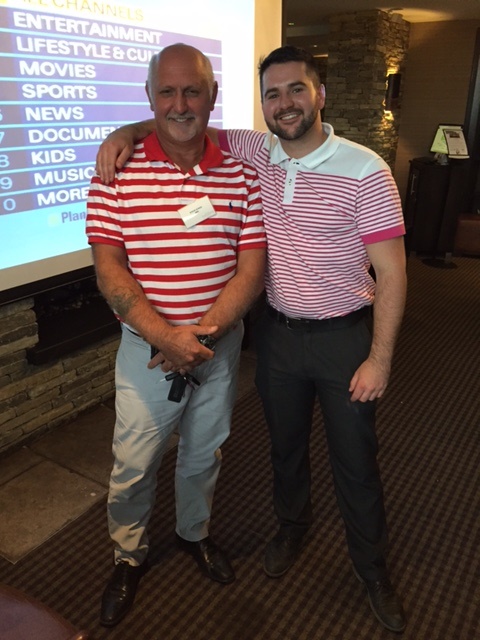
1st Sam Sykes,
2nd Mike Tobin
The "Nick Rhodes”
Wooden Spoon
Award
Nick Rhodes (Calibre Search)
Interview coming up for an SEO job? Here are 7 things the interviewer will be looking for.
Interview coming up for an SEO job? Here are 7 things the interviewer will be looking for.
I’ve deliberately left out technically-focussed questions and concentrated on softer attributes but feel free to drop me a line with any you think I’ve missed and I’ll include them in a future blog.
1. Adaptability. The world of SEO is forever changing; even in the last few years the industry has changed remarkably, so prove that you are able to adjust to whatever challenges are thrown your way.
2. A desire to improve. You will never reach a point where you know everything about SEO so why stop learning? What SEO blogs are you reading to improve your skillset? If you’re not improving you are falling behind.
3. People skills. There’s a good chance that you will be speaking to clients, but even if that’s not the case you will need to work well with colleagues. If you’re not a natural people person that doesn’t mean you can’t improve. Work on cultivating your rapport and developing relationships.
4. Evidence. You will be asked for examples of your work so make sure you can detail website names, keywords, starting ranks, issues, software used, closing ranks etc and be able to explain your thinking.
5. Detail. Detail. Detail. This is an obvious one but it’s important to show that you don’t make mistakes easily and that’s all the way through the process from writing your CV, emails to the client, and turning up for interview at the right time.
6. Willing to get your hands dirty. SEO isn’t always glamorous. Even if you are more senior you will need to get stuck in so prove this to the client.
7. Commercially focussed. This is more relevant the more senior you are but having an understanding of companies’ commercial needs is important whichever side of the agency/clientside fence you are on.
As I say there are other points to add but hey, 7 is my favourite number.
If you would like to discuss any of these points further or would like to see what positions we are looking to fill please call Matthew Finlay on 0113 234 6047, email matthew.finlay@calibresearch.co.uk or visit our jobs page at http://www.calibresearch.co.uk/job-search/browse/marketing/jobs
If you want to have a look at the questions I’m advising my clients to ask at interview why don’t you have a look at my previous blog here.
Calibre Search’s Leeds office has moved!
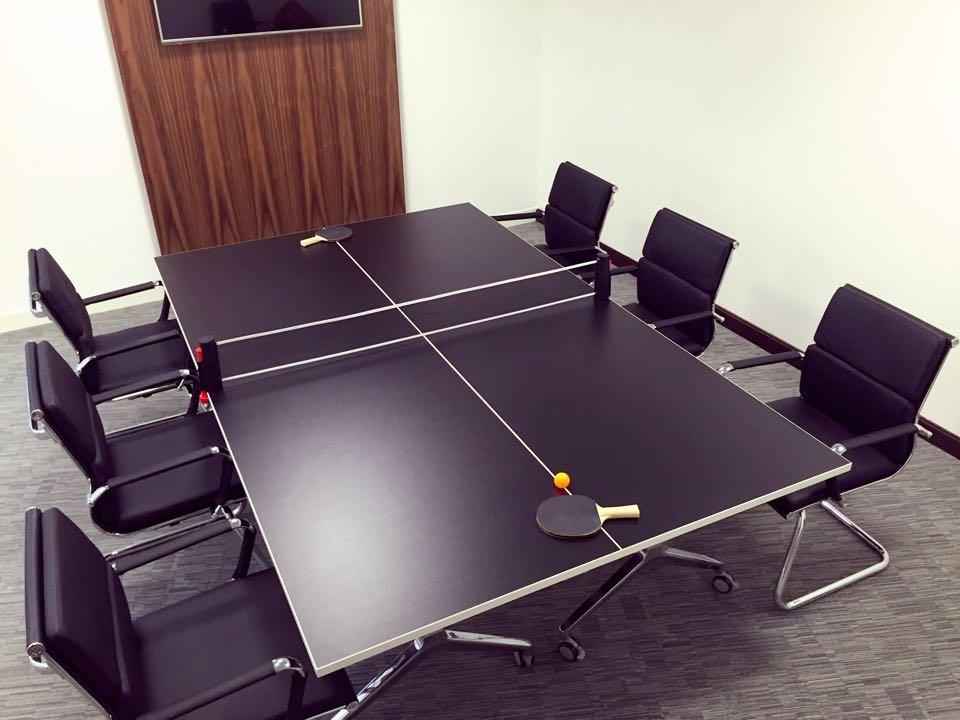
Our office move in Leeds has caught the eye of the press with articles in the Yorkshire Post and Bdaily. The article can be found below.
"Leeds-based recruitment consultancy, Calibre Search has moved to bigger premises on Leeds South Bank.
The specialist consultancy will join the likes of Burberry at the rapidly growing hub for the city’s creative, digital and tech industries.
Calibre says the move comes after a flood of announcements about investments in the rejuvenated South Bank, making it one of the city’s prime locations. Most recently, this includes plans to transform Leeds Station into an integrated high-speed transport hub announced last week.
Managing director Mark Lyons said: “There’s a real buzz about the investment and redevelopments in the South Bank area, including the Tower Works project, Leeds Dock and now the HS2 hub.
"It’s becoming one of the most sought after addresses in the city, and we wanted to secure our place in what promises to be an exciting future for the area,”
Calibre moved into offices at Victoria Wharf at the start of 2014 and has now outgrown this space, having doubled the size of its Leeds-based team from seven to 16.
Cushman and Wakefield in Leeds helped Calibre secure a highly specified first floor space with views of the River Aire at 7 Brewery Place.
“We decided to move further away from the traditional city centre professional services district as the companies in the South Bank are more in tune with our own business approach,” said Mark.
“The Northern Powerhouse initiative offers a great opportunity to companies in the major northern cities of Leeds and Manchester who are keen to attract high quality professionals from the south. We are confident we have the skills and the connections to support these companies and further grow our own business.
“As recruiters we think it’s important to develop stronger relationships in areas where incoming investment and developments will help the local economy grow and provide sustainable employment opportunities. Our office environment and locations in both Leeds and Manchester will play a huge part in making us the employer of choice for recruitment consultants, as well as the consultancy of choice for firms in our specialist sectors of the built environment, marketing and IT."
To view the articles in their original formats follow the links below;
https://bdaily.co.uk/entrepreneurship/08-12-2015/new-south-bank-home-for-leeds-recruitment-agency/
